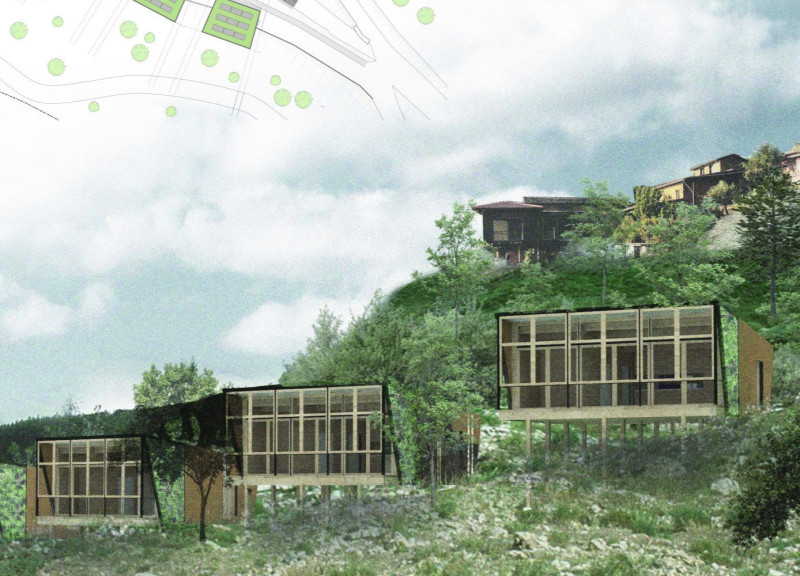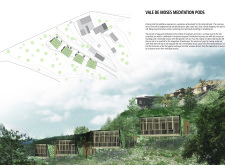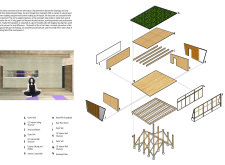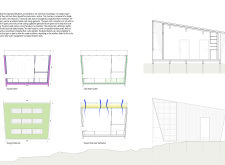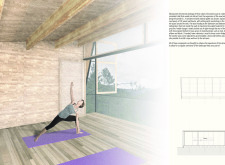5 key facts about this project
The Vale de Moses Meditation Pods are located within the scenic landscape of Portugal, featuring rolling hills and flowing rivers. Designed for meditation and yoga, the project focuses on promoting mindfulness and self-awareness. The architectural intent is to connect people with nature while reducing distractions from the outside world. Each structure is carefully positioned and designed to support deeper engagement with the surroundings.
Integration with Landscape
The design is closely tied to the natural environment. The cabins are placed along the hillside, allowing them to follow the contours of the land. Their simple shapes draw the eye toward the panoramic views beyond, emphasizing the beauty of the landscape. This arrangement encourages users to focus on their surroundings and enhances their meditation experience.
Materiality and Sustainability
Material choices are pivotal to the overall design. The exterior features natural wood rain-screen cladding, which helps the buildings blend into their environment. Green wall systems and living green roofs add visual interest and contribute to the sustainability of the project. These elements improve insulation and manage rainwater, reflecting a responsible approach to the building’s ecological impact.
Structural Considerations
The cabins rest on a foundation made of wooden piles with diagonal bracing. This design minimizes the impact on the existing forest floor and allows the natural landscape to remain largely undisturbed. The footings are constructed around each pile, ensuring that the environment influences the structure while keeping human intervention minimal.
Interior Design and Functionality
Inside, the cabins prioritize simplicity to ensure connections to the landscape take center stage. A consistent material palette reveals the natural charm of the construction elements. Sliding doors provide efficient use of space and maintain clear views, while built-in storage keeps necessities handy without cluttering the area.
Operable windows are a key feature of the main façade. They allow fresh air and light to enter while helping to manage indoor temperatures. Each cabin supports eco-friendly practices, including gray water systems to irrigate the surrounding green walls. This attention to sustainability and practicality creates an environment conducive to meditation.
The design encourages meaningful interaction with nature, allowing residents to find peace and focus. Each element has been carefully considered to enrich the overall experience, providing a space that invites mindfulness and connection with the outdoors.


